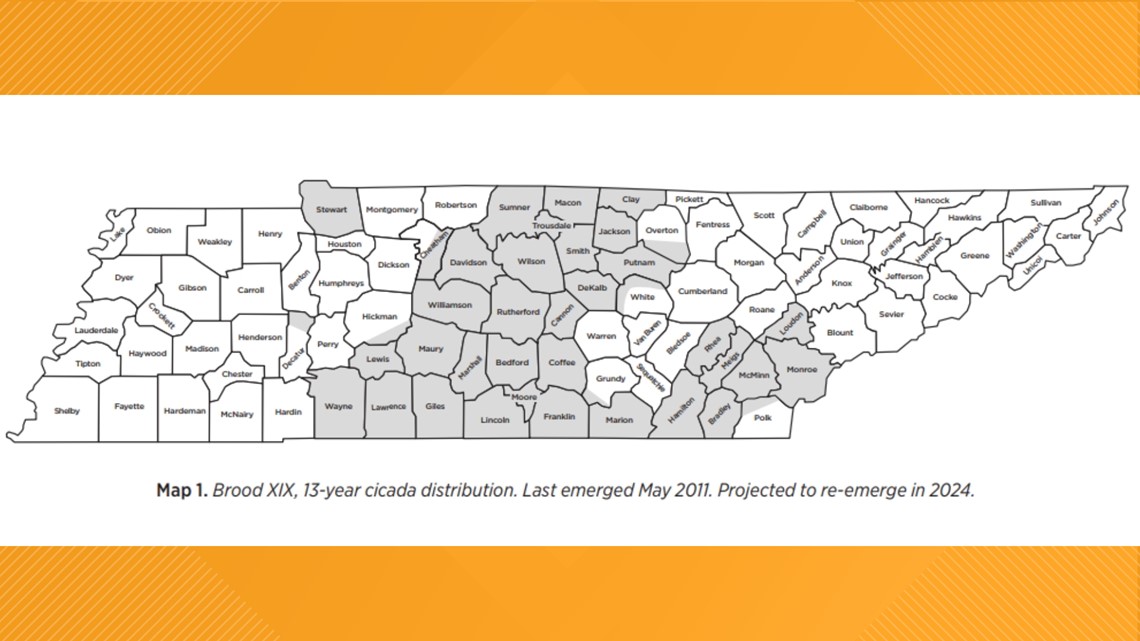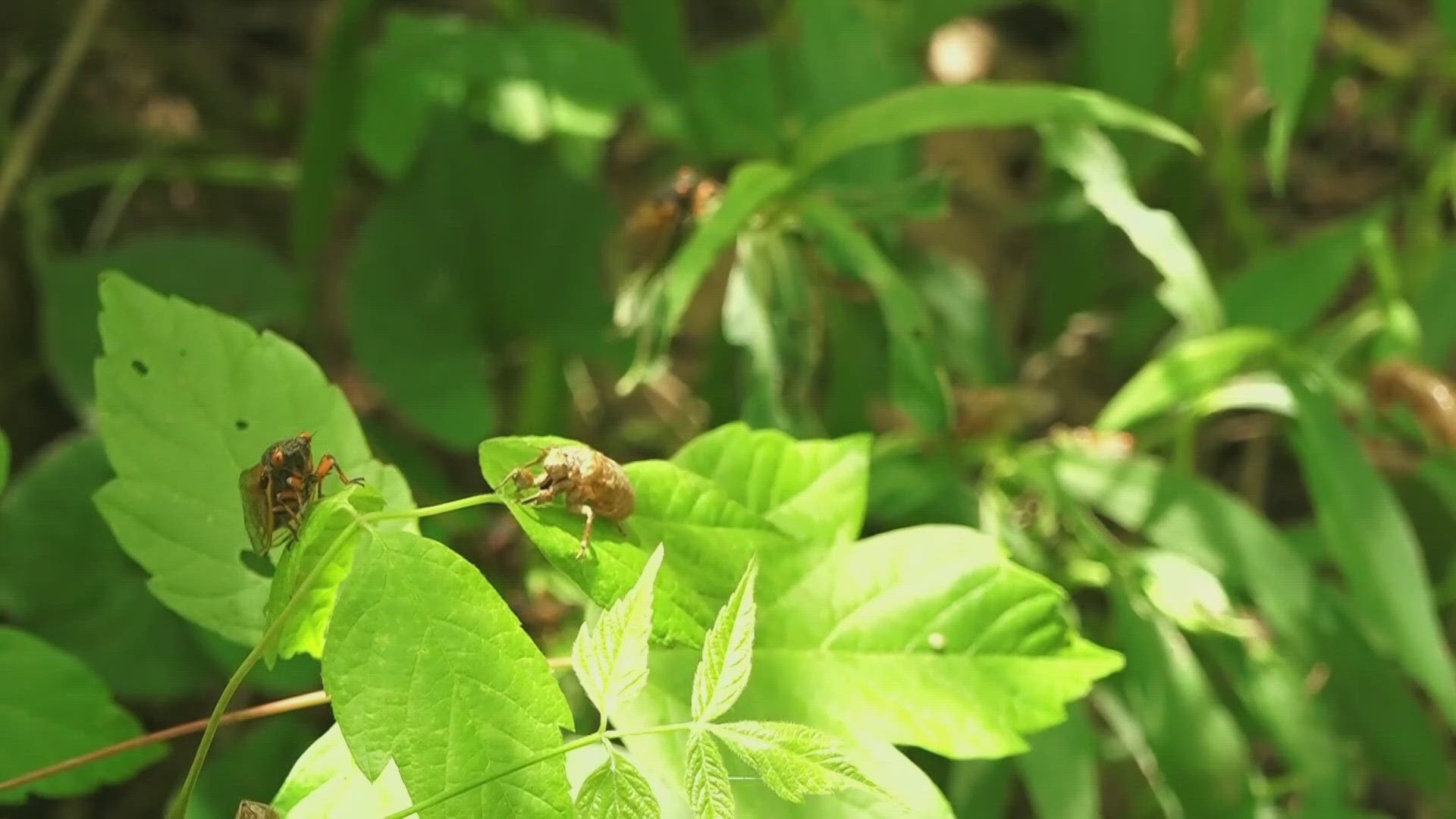KNOXVILLE, Tenn. — The sounds of summer will soon fill the air, and for East Tennessee -- that usually means some light chirping of cicadas in the day and katydids at night.
For 2024, people with entomophobia in certain parts of the U.S. will soon be experiencing a waking nightmare when Brood XIX cicadas emerge from the warm earth, swarm nearby stationary objects like trees, and fill the air with their signature screeching roar. Brood XIX is known as the 13-year Great Southern Brood, and it is believed to be the largest cicada brood in the U.S.
To make matters worse (or better, if you love cicadas) -- 2024 is a double brood emergence. Brood XIII will also emerge from the ground in parts of the Midwest and Southeast.
Some are calling it "cicada-geddon," and the last time these two broods emerged at the same time was in 1803, according to the Associated Press.
For states like Illinois and Missouri where the two broods overlap, June 2024 is shaping up to be deafeningly chirpy.
Here in East Tennessee, Brood XIX will make its presence known in a few counties -- but it's not going to be the same kind of "explosion" seen to our northwest or something that will rival the 17-year cicadas we saw in 2021 and 2004 with Brood X.
According to the University of Tennessee's Department of Entomology and Plant Pathology, the Brood XIX cicadas are expected to emerge primarily in Middle Tennessee. However, the brood is also known to emerge in East Tennessee counties closer to the Chattanooga area, including Monroe, McMinn, Meigs, Rhea and Loudon counties.


Going by the last 13-year cicada emergence, the Brood XIX bugs didn't really make any headlines here in East Tennessee in 2011. However, if you head to Middle Tennessee, it's probably going to be a total screechfest starting in late May or early June.
Millions upon millions of the bugs swarmed the Nashville area back in 2011, and Vanderbilt University reported at the time that the cacophony of cicadas outside Vanderbilt University Medical Center was loud enough to damage people's hearing. There were so many bugs that their carcasses ended up clogging cooling systems across campus.
If you hate bugs but love the Music City, then perhaps you should plan on visiting Nashville later in the summer this year after the cicadas stop swarming. Once the brood emerges, they typically mate for five to six weeks before dying off.

